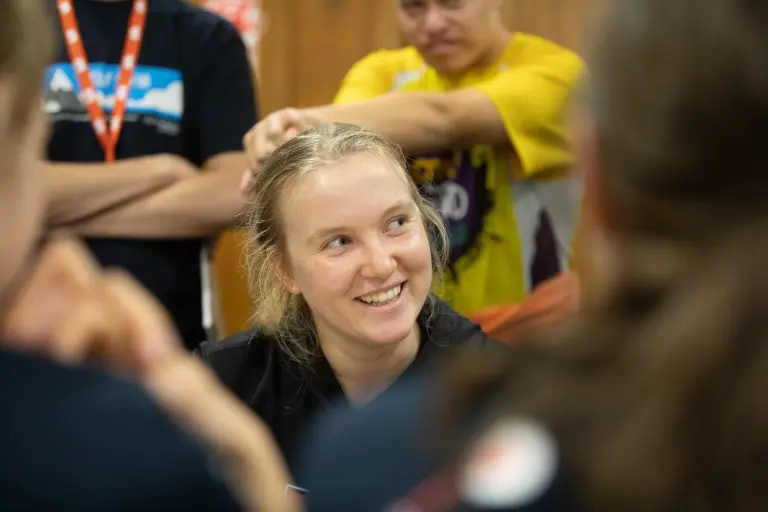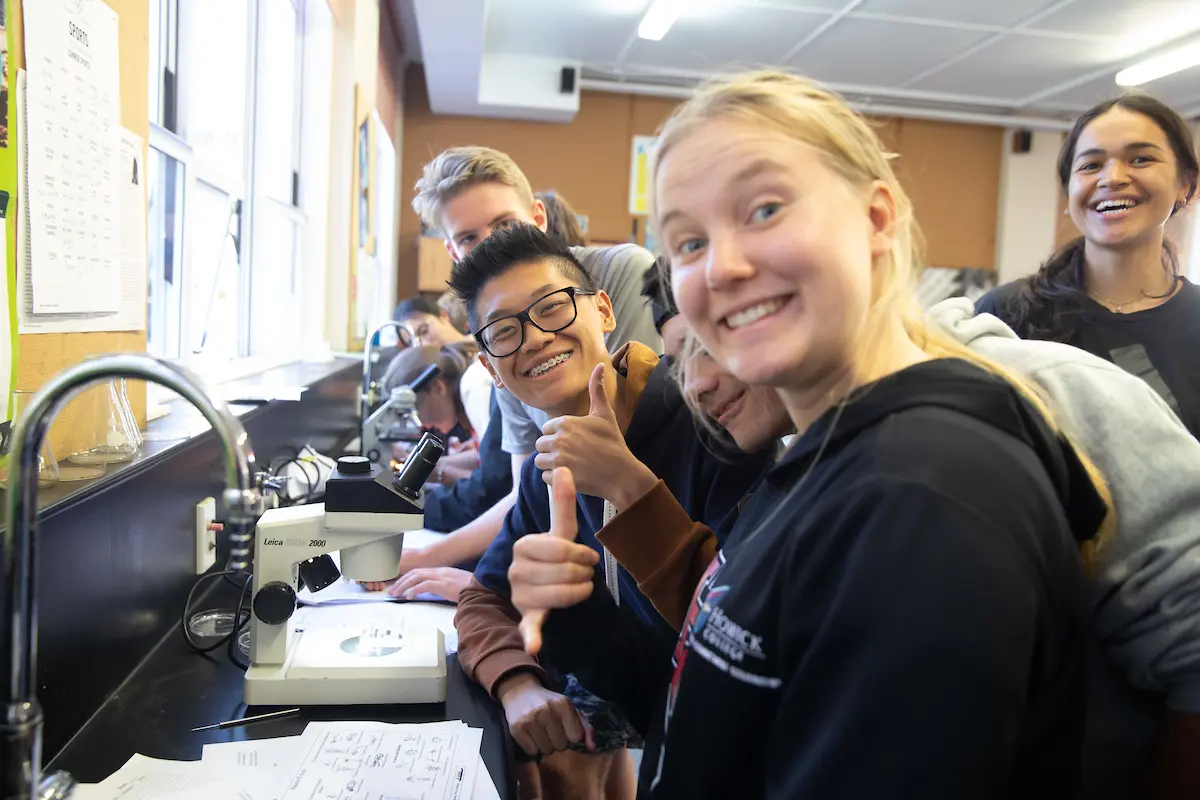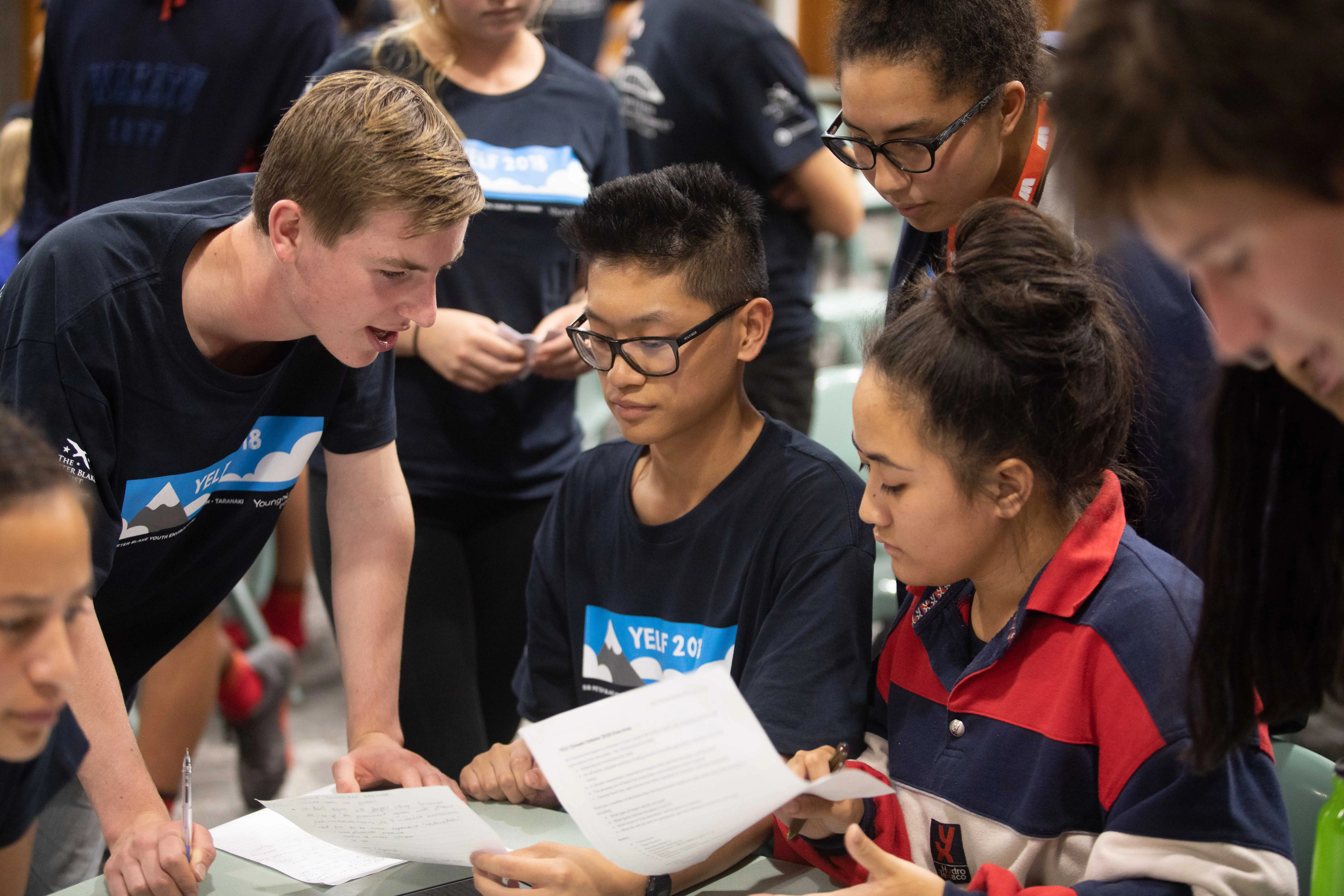As Kiwi teenagers were encouraged to seek solutions and make a difference during an action-packed week at the Sir Peter Blake Trust’s ‘Youth EnviroLeaders Forum’ (YELF), one student immediately put that advice to work, challenging the NZQA. Suzanne McFadden reports.
The head girl at Howick College in east Auckland, Inka was appalled by the use of plastic wrapping on every NCEA exam paper in the country.
“It’s a huge amount of plastic. When I chatted with other students, they agreed it was a terrible waste,” she says.
But when she attended the Young EnviroLeaders Forum (YELF) in Taranaki – the week-long conference for New Zealand students focused on climate change – Inka was inspired to do something about it.
“They encouraged me to contact NZQA, so I emailed them saying I was concerned about their use of plastic wrap. They came back to me and said the plastic was biodegradable,” she says.
“What I learned from YELF is that biodegradable plastic won’t break down unless it’s exposed to UV rays and high temperatures. And that won’t happen if it’s in landfill or in the ocean.
“So I emailed back to them and said ‘Not quite good enough’. So they’ve said they will pass it on to higher powers.”
If Inka doesn’t make any headway with NZQA, she intends to start a petition, calling for the plastic wrap to be replaced with something that can be recycled – “paper bags or envelopes, or even reusable zip-lock bags,” she says.
“I wouldn’t have had the confidence to do all that if I hadn’t gone to YELF. I probably would have mulled over it and thought ‘hmm I’m not very happy about this’, but I doubt I would have gone out and done something.”
Inka was one of 55 high school students from across the country attending the Sir Peter Blake Trust’s annual YELF week, who share a common commitment to making a difference to New Zealand’s environment.
During the week, she learned about the Zero Carbon Bill, now at a consultation stage, and how New Zealand is preparing for rising sea levels: “That’s going to be a huge issue”.
“It also taught me how to think about solutions – we had a ‘smart goals’ workshop encouraging us to find ways that we could make a difference,” says Inka, who’s been instrumental in a project to reduce her school’s waste by 70 percent.
In a mock parliament session, Inka was elected as the country’s deputy Prime Minister – a role she’s actually been interested in pursuing.
“I’ve never been to a proper parliament, but it seemed pretty authentic. When we walked into the room, everyone stood and started singing the national anthem,” she laughs. “It was so cool to pretend to be influential people who had a say in environmental issues.
“I wanted to be the Prime Minister when I was younger, and I still have it somewhere in the back of my mind. But I would like to do human rights work first, which could then take me into law and policy-making.”
That’s another area that YELF has helped Inka with. “It’s connected me with people who may be able to help me with my future, and also given me the idea to not only work in human rights, but to incorporate environmentalism into it too.”
She has plans to move to Wellington next year, and study international relations at Victoria University, while trying to get an internship in parliament or the Ministry for the Environment.
Reuben He, the head boy at Rutherford High School in west Auckland played the role of an advisor to a non-governmental organisation in the mock parliament – and surprised himself by how zealous he became.
“I was standing on the desk protesting about preserving the environment; I got quite immersed in it. I was really loud throughout the whole debate, and I had a sore throat the day after,” he says.
“We had one opportunity to go in and speak to the government and lay out our viewpoints, and I started protesting and got kicked out of the room.
“It was good to look at issues from an NGO’s perspective, and look at climate change from a different angle. Yes, one group or organisation may think one thing, but there will always be another side.”
Reuben intends to become a doctor, but being at YELF made him realise he can still make a difference to the environment no matter what his career. “It’s through your everyday actions, setting personal targets, and even in your career, sharing your viewpoint,” he says.
He’s been involved in environmental groups since he was in his third year of primary school. Bored with playing football at lunchtimes, a teacher saw him wandering the school grounds, and encouraged him to look at joining the environmental committee.
“It grabbed my attention straight away, and I’ve been involved ever since. It’s really rewarding and satisfying seeing those around you being affected by your actions in a positive way. I hope that just by being me, I can make a difference in other people’s lives,” he says.
One of his latest passions is the Twin Streams environmental restoration project in the Waitakere Ranges. “The Pixie Stream runs through our school, so every term we collaborate with community organisations, and get all of the Year 9 students to plant trees on the banks of the stream, to restore biodiversity and stop erosion,” he says.
Both students realise the importance of passing on to their peers the knowledge they gleaned at YELF.
“Essentially we are the future. We’re going to have live with all the crap the environment has been getting for the last century. I think we have to be part of the solution,” Inka says.
“There’s a misconception that youth don’t care. But I think if they were all made aware, they would do something about it.”




